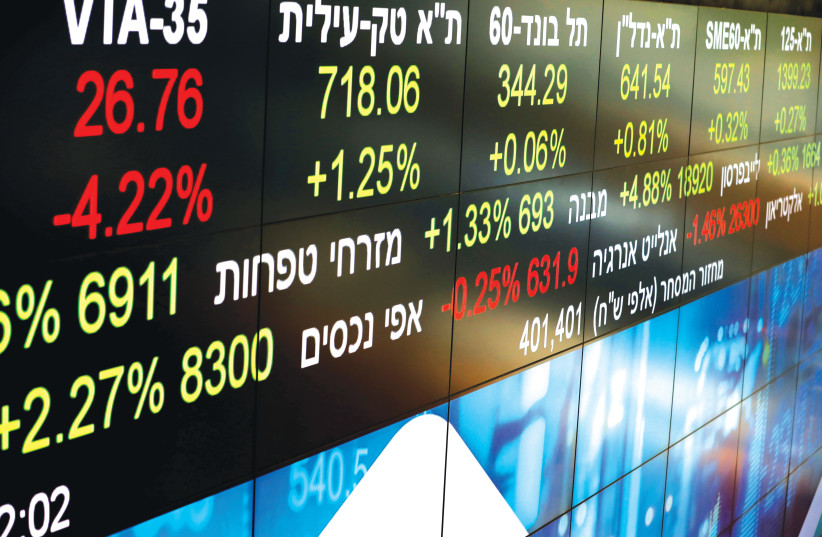Wall Street stocks opened slightly higher on Monday while oil prices declined, as investors digested Chinese data that heightened worries of an economic slowdown and looked ahead to a key US inflation report.
The Dow Jones Industrial Average rose 0.32% to 33,843.7, the S&P 500 gained 0.18% to 4,406.78 and the Nasdaq Composite added 0.06% to 13,668.61.
The pan-European STOXX 600 index rose 0.19%.
Stagnant Chinese consumer prices pose economic challenges
Chinese consumer price figures fell in June, leaving them almost unchanged from a year earlier, while producer prices slid deeper into negative territory.
The weakness implies scope for further monetary policy easing, but also underlines the challenge Beijing faces in reflating its economy and avoiding a deflationary spiral.

“China is just a symptom. We see weaker growth around the world because of the effect of higher interest rates. China is exposed to that because of their export sensitivity,” said Matthias Scheiber, global head of multi-asset portfolio management at Allspring Global Investments in London.
“The challenge going forward will be on equity valuations. If there is no improvement in earnings, it will be hard for equities to continue to rally,” added Scheiber.
Citigroup downgrades US stocks, anticipates pullback in growth equities
Citigroup on Monday downgraded US stocks in anticipation of a pullback in growth equities and a recession in the fourth quarter of the year, while betting on beaten-down counterparts in Europe with an upgrade.
The brokerage cut its rating on US stocks to “neutral” from “overweight” after a strong rally in the first half of the year. It warned that growth stocks were set for a pullback as the “euphoria” around artificial intelligence enters a more “digestive” phase.
The earnings season starts this week with JPMorgan, Citi, Wells Fargo, State Street and PepsiCo among those reporting.
US consumer prices are expected on Wednesday to show headline inflation slowed to its lowest since early 2021 at 3.1%, down from 9.1% a year earlier.
Optimistic outlook for US inflation
“We have been optimistic about the soft landing story since April. The consumer seems to be stronger than anyone imagined. There’s still lots of money in people’s accounts and at the same time, people are highly employed,” said Fahad Kamal, chief investment officer at SG Kleinwort Hambros.
“Barring any upside surprise, US inflation should ease from here and the Fed might be near done.”
Markets still think the Federal Reserve is likely to hike rates this month, but a weak CPI might lessen the risk of a further move in September.
Currently futures imply around a 90% probability of a rise to 5.25%-5.5% this month, up 25 basis points.
Global rate hike concerns rise amid bond market volatility
Fed officials have been mostly hawkish in their communications, while markets have also priced in higher rates in Europe and the UK. Canada’s central bank meets this week and markets imply a 69% chance of another hike.
The risk of higher global rates for longer has caused havoc in bond markets, where US 10-year yields jumped 23 basis points last week, German yields 24 basis points and UK yields 26 basis points.
On Monday, US two-year yields last stood at 4.917%, having hit a 16-year high of 5.12% last week.
The jump in developed-world yields caused ripples in currency markets, particularly in carry trades where investors borrow yen at super-low rates to invest in high-yielding emerging market currencies.
The net result was a rush to close yen short positions that saw the Japanese currency rally across the board last week, though it struggled to sustain this on Monday.
Dollar recovers, gold dips, and oil prices decline
The dollar edged back up to 141.8 yen after sliding 1.3% on Friday. The euro, down 0.1%, and pound, down 0.5%, took knocks against a stronger dollar.
In commodity markets, gold dipped 0.5% after making a slight gain last week.
Oil prices dipped on Monday after weak economic data from top consumers, the US and China, although expected crude supply cuts from Saudi Arabia and Russia limited losses.
US crude fell 0.74% to $73.31 per barrel and Brent was at $77.92, down 0.7% on the day.
